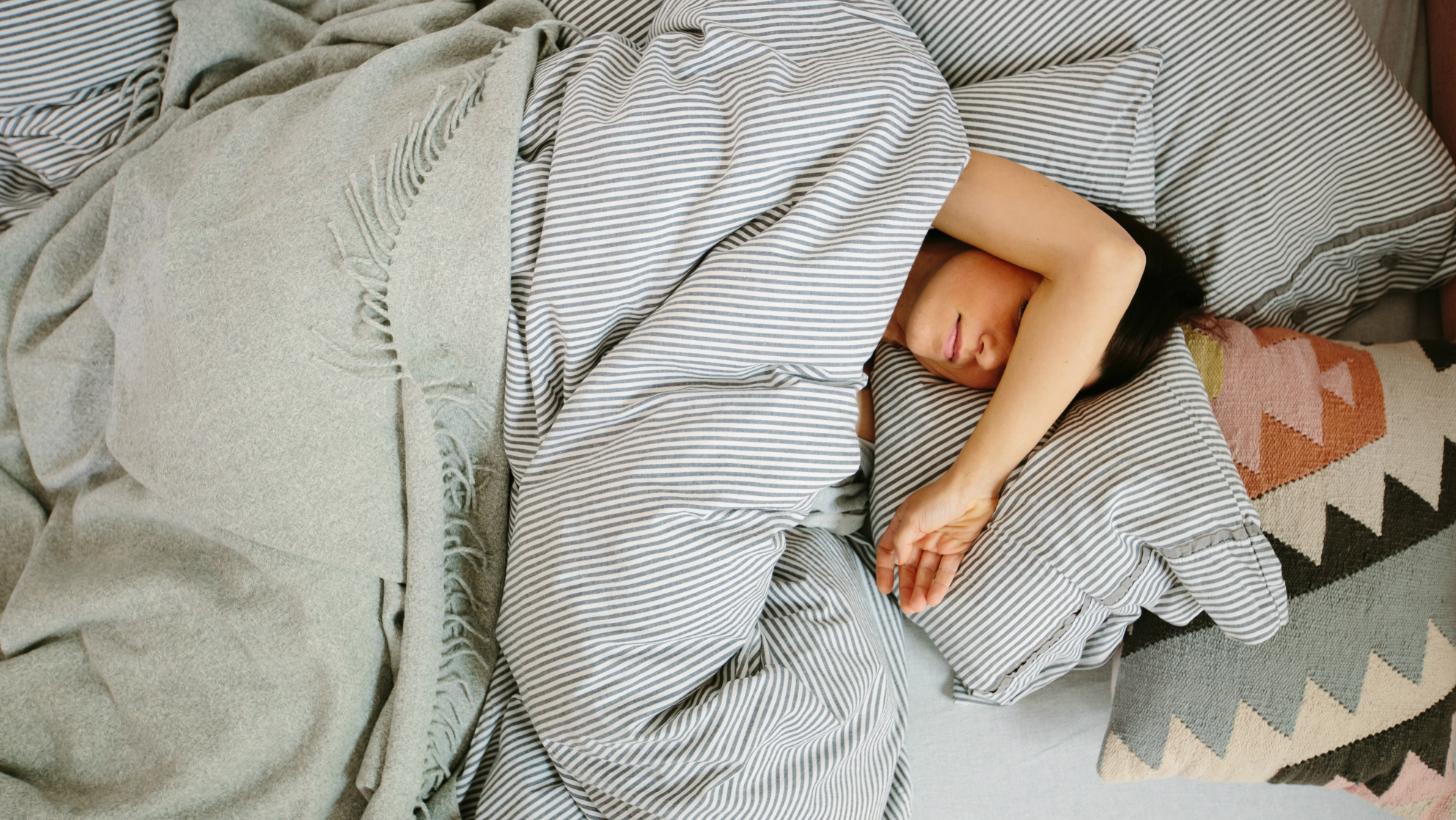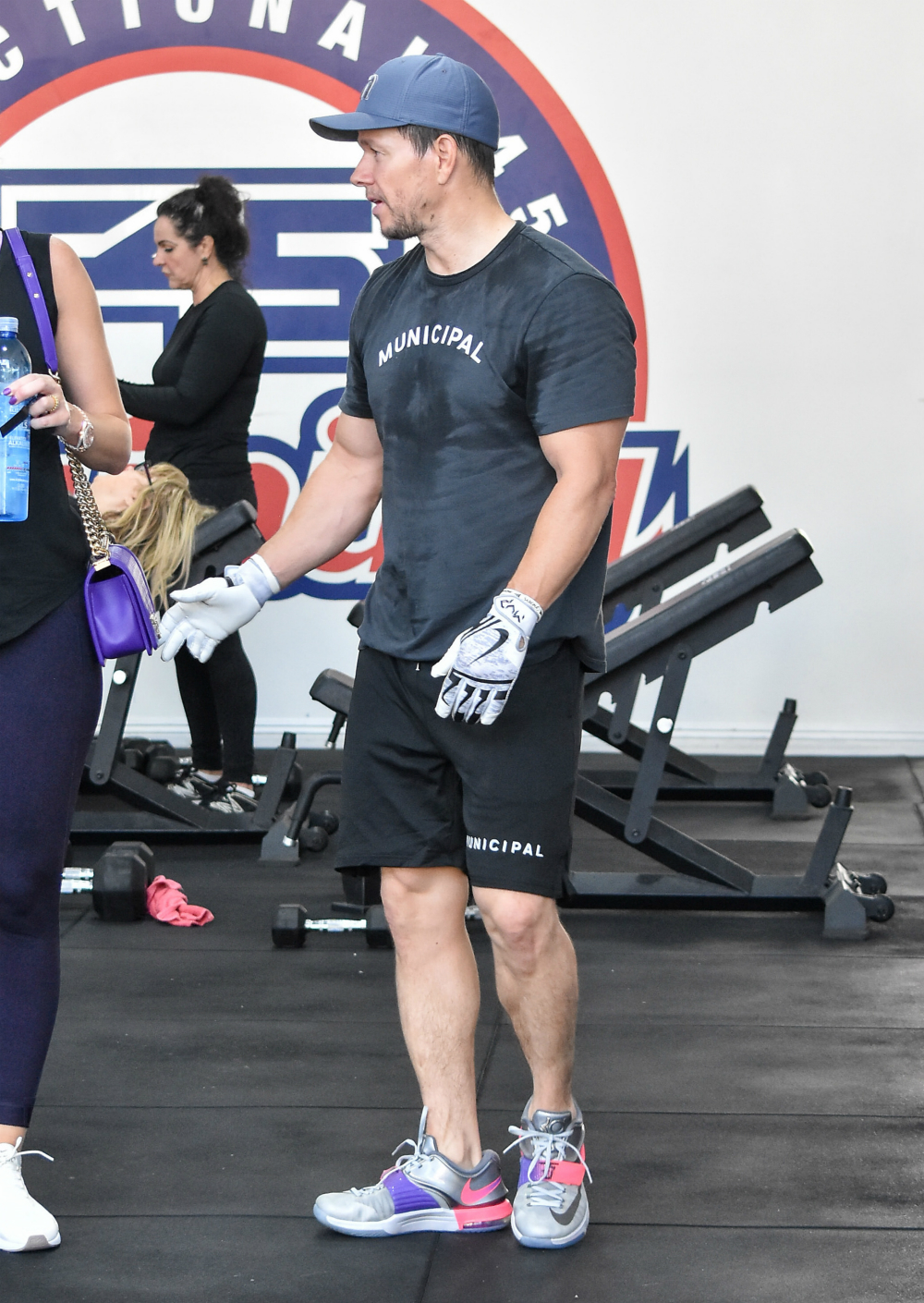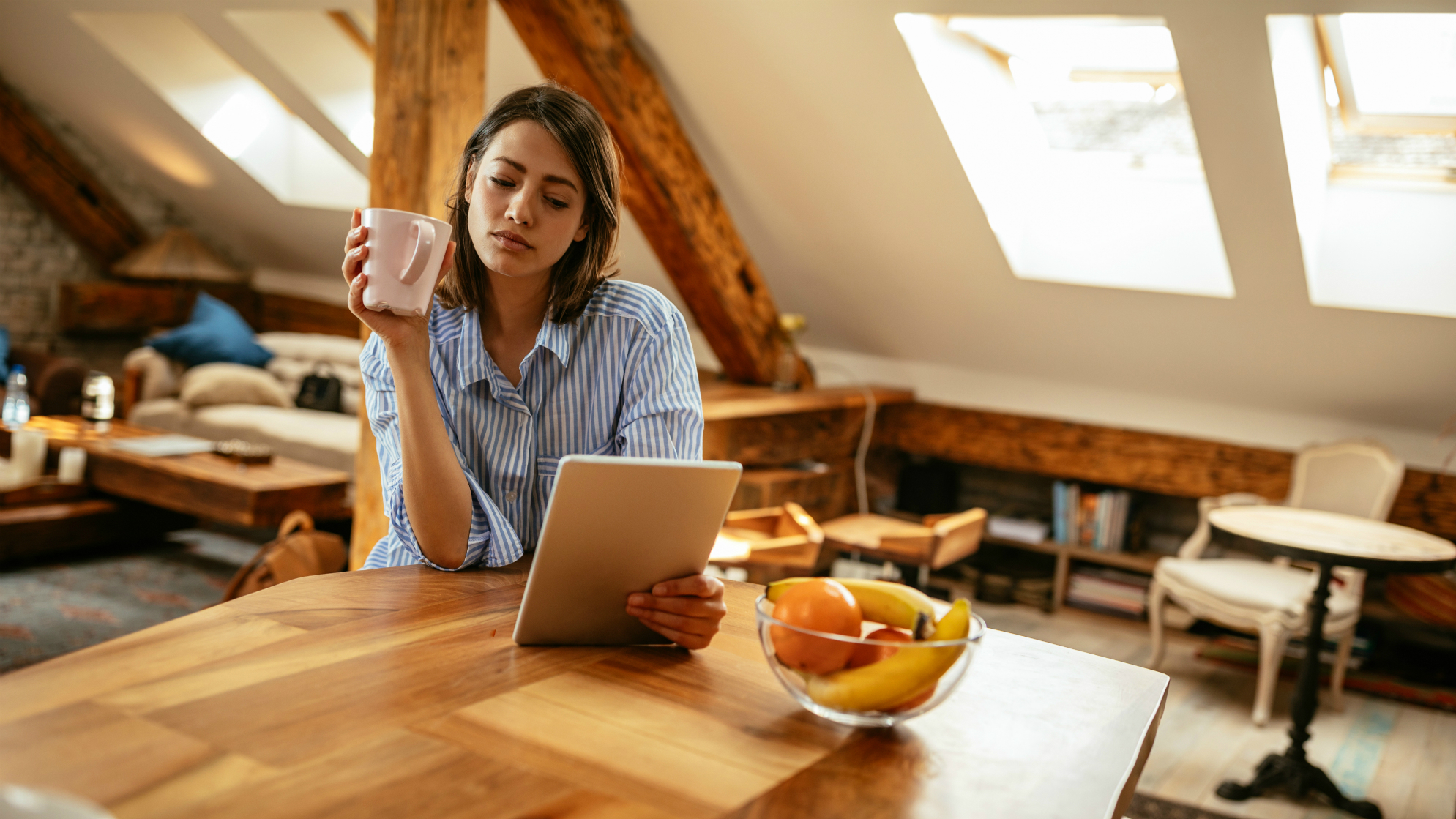Hit that snooze button! Why waking up at 5am won't make you more successful
Good news, night owls because new research dismisses the myth that rising early every day leads to increased productivity - so you can keep calm and carry on sleeping


Celebrity news, beauty, fashion advice, and fascinating features, delivered straight to your inbox!
You are now subscribed
Your newsletter sign-up was successful
Good news, night owls because new research dismisses the myth that rising early every day leads to increased productivity - so you can keep calm and carry on sleeping
Words by Clare Thorp
If you’ve ever wondered why you haven’t yet written that novel, landed the corner office or made your first million (hey, a woman can dream), you might have pondered whether your wake-up call has anything to do with it. After all, read about the morning routine of any 'Successful Person' and they’re likely to evangelise about their 5am starts, and how integral those early hours of pilates/meditating/journaling/drinking matcha tea can be. Apple CEO Tim Cook wakes at 3.45am; Twitter’s Jack Dorsey rises at 5am; while Anna Wintour gets out of bed at 5.45am and heads straight for the tennis court. In comparison, Oprah Winfrey wakes up at a leisurely (if strangely precise) time of 6.02am.
I live vicariously through other people’s morning routines. I devour details of how someone starts their day, from what time the alarm goes off and what they eat, to how soon they check their emails and what they listen to. We all remember Mark Wahlberg’s morning routine going viral when the actor revealed he gets up at 2.30am, has breakfast at 3.15am, and a post-workout meal at 5.30am. That’s two whole meals before most of us have even stirred.

I think I’m so fascinated by all this because early risers —especially those who seem to enjoy it —are like an exotic species to me. I find doing anything pre-8am unbearable. On the rare occasion I haul myself out of bed at 6am, I tend to stare blankly at the laptop screen for two hours, achieving little besides total exhaustion. My body might be awake, but my mind most certainly isn’t.
Thankfully, I’m self-employed, so I don’t have a train to catch or an office to clock in to. I also don’t have kids (I realise that if I did, an early wake-up might not be a matter of choice). But for a long time I’ve felt like my inability to get out of bed is some kind of failure; that I could be achieving so much more in my life if I could only manage to crawl out from under the duvet an hour or two earlier.
However, new research suggests that early start times might not be the key to productivity after all —at least not for most of us. The study by genetics company 23andMe found that the average person’s genetic wake-up time is 7.55am. For those in their thirties, it’s 8.19am, while for twenty-somethings it’s 8.47am. The research also found that rising early each day causes many of us to function on autopilot; to become less focused and productive than we could be.
Celebrity news, beauty, fashion advice, and fascinating features, delivered straight to your inbox!
Of course, most of us have to get up earlier than we want to for work, but what about those choosing to get up two, three, even four hours earlier than they need to? ‘Around 25% of us are strong morning people; 25% are strongly evening, while 50% of us are in the middle,’ explains sleep expert Dr Neil Stanley. 'That’s genetic and there’s nothing you can do about it. Yes, you can try to change but you’re going against your genetics so all you’re doing is coping. You’re getting through it — probably with the aid of numerous cups of coffee.’

If you’re forcing yourself to get up at 5am because you think that’s what you should be doing, yet feel wiped out or miserable afterwards, it might be time to admit you’re not a morning person after all. There’s no moral high ground in getting stuff done at 5am instead of at 11pm. It’s all about what works for you. ‘If you feel happy, alert and awake when you get up early then you’re suited to it,’ says Dr Stanley. ‘If you feel sleepy or that you can’t focus on your work or achieve anything, it’s not for you.’ Not entirely sure whether you’re a morning or evening person? This questionnaire might help you to figure it out.
If early starts work for you though, keep setting that alarm. ‘Becoming an early riser changed my life completely,’ says author and presenter Gemma Ray, who gets up at 4am each morning. ‘I always thought I wasn’t a morning person. I used to present breakfast radio and I had so many alarms it was stupid. Then I read [Hal Elrod’s book] The Miracle Morning four years ago. I told myself I could get up and I’ve been doing it ever since. It’s my golden time that I crave; time for me away from being a mum and wife. I absolutely love it.’
Others have tried an early morning routine and hated it. Freelance journalist Flic Everett is a case in point. ‘For 18 months I had a very long commute that meant getting up at 5.30am. I felt permanently exhausted and needed three cups off tea before I could speak. I also had trouble sleeping as I knew it was all trickling away, and I had to get up in four or five hours. Now I work from home again, I’m back to my wake-up time of about 8am, and I stay in bed until 8.30am or 9am with the pets, reading the papers online and checking Twitter. I feel normal again, and have absolutely no interest in prising myself out of bed at the crack of dawn to meditate or listen to motivational TED Talks.’
As Dr Stanley says, it’s all about playing to your strengths - and listening to your body. ‘You should go to bed when you’re sleepy, sleep the amount you need and wake up when you’re refreshed,’ he says. If that’s 5am, great. Or if, like me, it’s a few hours later, all power to you, too.’
Maria Coole is a contributing editor on Marie Claire.
Hello Marie Claire readers – you have reached your daily destination. I really hope you’re enjoying our reads and I'm very interested to know what you shared, liked and didn’t like (gah, it happens) by emailing me at: maria.coole@freelance.ti-media.com
But if you fancy finding out who you’re venting to then let me tell you I’m the one on the team that remembers the Spice Girls the first time round. I confidently predicted they’d be a one-hit wonder in the pages of Bliss magazine where I was deputy editor through the second half of the 90s. Having soundly killed any career ambitions in music journalism I’ve managed to keep myself in glow-boosting moisturisers and theatre tickets with a centuries-spanning career in journalism.
Yes, predating t’internet, when 'I’ll fax you' was grunted down a phone with a cord attached to it; when Glastonbury was still accessible by casually going under or over a flimsy fence; when gatecrashing a Foo Fighters aftershow party was easy-peasy-lemon-squeezy and tapping Dave Grohl on the shoulder was... oh sorry I like to ramble.
Originally born and bred in that there Welsh seaside town kindly given a new lease of life by Gavin & Stacey, I started out as a junior writer for the Girl Guides and eventually earned enough Brownie points to move on and have a blast as deputy editor of Bliss, New Woman and editor of People newspaper magazine. I was on the launch team of Look in 2007 - where I stuck around as deputy editor and acting editor for almost ten years - shaping a magazine and website at the forefront of body positivity, mental wellbeing and empowering features. More recently, I’ve been Closer executive editor, assistant editor at the Financial Times’s How To Spend It (yes thanks, no probs with that life skill) and now I’m making my inner fangirl’s dream come true by working on this agenda-setting brand, the one that inspired me to become a journalist when Marie Claire launched back in 1988.
I’m a theatre addict, lover of Marvel franchises, most hard cheeses, all types of trees, half-price Itsu, cats, Dr Who, cherry tomatoes, Curly-Wurly, cats, blueberries, cats, boiled eggs, cats, maxi dresses, cats, Adidas shelltops, cats and their kittens. I’ve never knowingly operated any household white goods and once served Ripples as a main course. And finally, always remember what the late great Nora Ephron said, ‘Everything is copy.’
